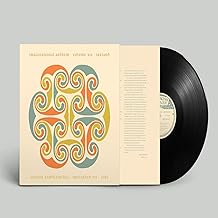American Baroque - Chamber Pop And Beyond 1967 - 1971 - Black LPx2
Artist
Format
Style
Label
Release Date
01/31/2025
Store
Price
Catalog Number: XXQLP2146
Color: Black
Format: LP
UPC: 029667025416
The heyday of American baroque pop - or chamber pop - ran from 1966
to the turn of the seventies. It used string quartets, harpsichords and
woodwinds to create a summer-into-autumn melancholy that was quite new,
and quite far removed from rock'n'roll as Eddie Cochran would have known
it. Baroque pop's musicians often came from a folk background, with an
affinity for acoustic instrumentation. Linda Ronstadt's first band the
Stone Poneys had introduced the autoharp to their line-ups in 1965,
while the likes of Bonnie Dobson and Nico experimented with a string
quartet's, searching for different, post-electric Dylan directions.
You can trace it back to the Left Banke
who created a sound that was soft but insistently sad - where were the
guitars? Their guitarist Rick Brand claimed their lyrics "were written
as rather self-consciously beautiful musical whimsy, as you find in the
latter 18th-century Romantic music, pre-Beethoven". They had a huge hit
with 'Walk Away Renee' and effectively invented a genre before
combusting after just one album. Splinter group Montage produced a very
rare album and singer Steve Martin Caro an equally rare single - both
are represented on "American Baroque".
Though the baroque sound
was quickly forced into a corner by the back-to-basics stance of power
trios like Cream and Blue Cheer, many musicians weren't yet ready to
ditch cellos and harpsichords. Some groups like the Blades of Grass
aimed their minor key melodies at an early or even pre-teen following.
And others like Emmit Rhodes' Merry Go Round, H.P. Lovecraft and
Appaloosa simply loved the feel of string quartets and woodwinds and
continued to explore orchestral pop further, into the early seventies.
In
doing so, they created this tapestry of delights. There was no single
blueprint for the American baroque sound - it could be bordering on the
gothic (Russ Giguere of the Association's extraordinary 'My Plan') or as
small and precise as a music box (Tom Northcott's 'Other Times').












